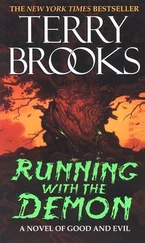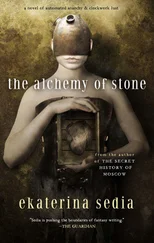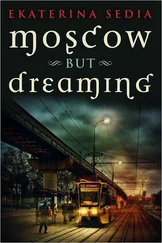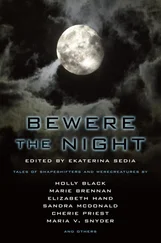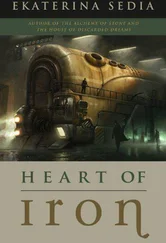The sun coming through the shaded window seemed to grow brighter, forcing Yvette to squint her eyes.
“ . . . my dear, these conditions aren’t brought on by loveless marriages, solipsism, drug addiction or manic-depressive paranoia. Early on, before she freaked out, back when she babbled more and shrieked less, my first patient told me that, ‘Anguish was her prey.’ Now I know what she meant.”
“Was it Larissa?”
“Don’t say her name. It was far before her.”
“How long have you treated bispecials?”
“Since the beginning, quite a long and desiccated span of time.” Dr. Rothgate cleared his throat. “It was her mother. She was the first of the goblins.”
They both turned away from the bright window shade. Dr. Rothgate had a long draught from his brandy bottle, then handed it to Yvette.
“I thought it couldn’t pass to kids. And why didn’t Larissa choose goblin like her mom?”
“It can’t. Anastasia Blackweight birthed Larissa before she was afflicted.”
“Remember when we met? You wouldn’t have called it an affliction . . . ”
“I say many things.”
“What did she mean, ‘Anguish is our prey?’ Larissa said the same thing to me. Skip the hemming and hawing about how she was a suicidal lunatic. I know you want answers.”
“I want to help you, Yvette. It’s all I want, I think.”
He took the brandy bottle back.
“I’m the only way you can save yourself,” Yvette said.
“I’m beyond saving. Anyway, she hated her mother. I shouldn’t tell because you’re still trying to sort things out—we don’t believe in shock or confrontation here—but the anguish that twisted and tortured me has vanished now that I’ve succumbed, er, finally decided.”
“Yeah, you were like me, but I can’t figure out which way you’ve gone.”
“Good. I don’t want you to know.”
“This process has taken quite a toll on me. I just want to do what’s right.”
“In France, a sixteenth century judge sentenced six hundred shapeshifters to death. The Malleus Maleficarum has a section on how people change and that was written in 1484.”
“I’ve changed my mind again. I’m going to leap off a bridge if that’s the only way to keep from hurting people.”
“You know she talked like that, don’t you? Are my notes right, did you know her?”
“We talked a few times. Only one conversation stands out. I didn’t realize how momentous it would seem in retrospect. I try to hallucinate semi-lucid conversations with the imaginary version of her that I remember, but she’s dead.”
“If you only sleep once or twice a week for long enough, everything’s dead.”
“Dr. Rothgate, you’re freaking me out.”
“I’m sorry. We theorists aren’t good at forcing outcomes,” the doctor said, before thanking Yvette for her time and encouraging her to rest. He stumbled out the door, leaving her alone in his office. Yvette couldn’t tell if he was having difficulty walking because of drunkenness or because his back was changing shape.
Amidst shelves warped with arcane books, two paintings dominated the walls. One was an abstract and roiling sea of red purples and purple reds. A three-dimensional claw, presumably sculpted from modeling paste, reached out from the bloody waters, reaching out to grab the painting’s viewer.
The other showed a young goblin girl staring at a storefront window. The window displayed a pink chiffon dress fit for a fairy princess. Tears rimmed the eyes of the girl with pointy ears and green skin.
Rising from the couch, Yvette resolved to delay her decision until she liked one of the options before her. It seemed better to suffer and try to talk to the dead than become an evil creature. In the past, she’d chosen deadlines like Arbor Day or Oscar Night, but her self-imposed deadlines had come and gone, just excuses.
Conversely, Yvette had accepted that she and the rest of the world were going crazy and getting worse.
Over the next two days, she felt like she was sleepwalking. Dr. Rothgate didn’t come to find her, preferring to stay in hiding. She understood. Their talk had left her even more fragmented than she’d been before. If Yvette had possessed a belfry, it would’ve been overflowing with bats.
Another day passed, lethargic and soggy. Yvette dreamed of being a mother, envisioning her children as a bouncing brood of vamplings or gobblekins. The consequences were so dire. Why did it have to be binary? She imagined how pussy willows wiggled in the wind so they wouldn’t break. Was the process like having a totem animal? Perhaps body modification would help with her transition. Whiskers implanted, stripes tattooed and teeth filed to little points. And, suddenly, her nightmares weren’t always about being a vampire or a goblin. She felt less weird, occasionally picturing her dream self as a wolf-creature. She would need surgery to make her outsides as freaky as her insides, but it struck her as a splendid compromise. She fell back asleep, briefly.
When Yvette woke, she was licking her lips and horrified to be doing it. White roses had been delivered. And they were turned inside out, puckered by the rapid advance of her sorrowful condition.
It was still called Willis & Rothgate, even though Dr. Rothgate’s presence was barely felt. New crops of bispecials meandered in and crept out. Yvette stood still while the world of sickness, wellness and horrible compromises scrolled past her. Over time, it felt less and less natural, more and more artificial.
Even though they’d said they weren’t coming back until she’d made up her mind, Yvette’s parents did finally return. They spoke in harsh but hushed tones.
“We heard you’re considering vampire,” her father said.
“I’d rather die.”
“Then perhaps you’ve decided on goblin,” her mother said.
“Have I mentioned that it’s not like a costume party? I don’t know who I want to be. The whole thing’s permanent, you know. The last thing I want is to despise myself for choosing to be someone I shouldn’t be.”
“Permanency’s better than trickery. You’re going to have to live your consequences,” her parents said in unison.
Yvette called several candystripers and demanded that they show her mother and father out. Yvette pretended that her parents would’ve apologized if she’d given them enough time. But she knew it was pretense. She invented people inside her head because it was better than being let down, continuously, by everyone she’d ever met.
The flat sterility of the halls and walls had greater echoes of life than Yvette did. Every breath was drudgery. She shambled to her room. The mood music played one of the Berlioz symphonies about getting hanged then some mopey darkwave ballad that Yvette kind of liked. She thought she’d smashed the machine. For now it was okay, but she’d imagine smashing the stupid thing again if she had to, in dreams or reality or somewhere in between, whatever it took to scrabble together a half-pretty sense of place . . .
Yvette resolved to stay institutionalized, as long as it took. Anything to prevent herself from eating people.
What was there to do?
Tired, always sleepy, Yvette went back to bed. Dr. Rothgate came in the night and took her to his office again. He had trouble walking, his shuffling gait making double-footfall patters in the hallway. He’d lost the distinctive goggles of his last visit and seemed to be having problems with his vision.
“I’m here to warn you.”
“You sound like everyone else.”
“You haven’t been out of the Institute’s walls for quite some time. Things have gotten eerie and ridiculous out there. Don’t fool yourself into thinking that days are still their normal lengths or that maps lead people where they’re going . . . ”
Читать дальше

